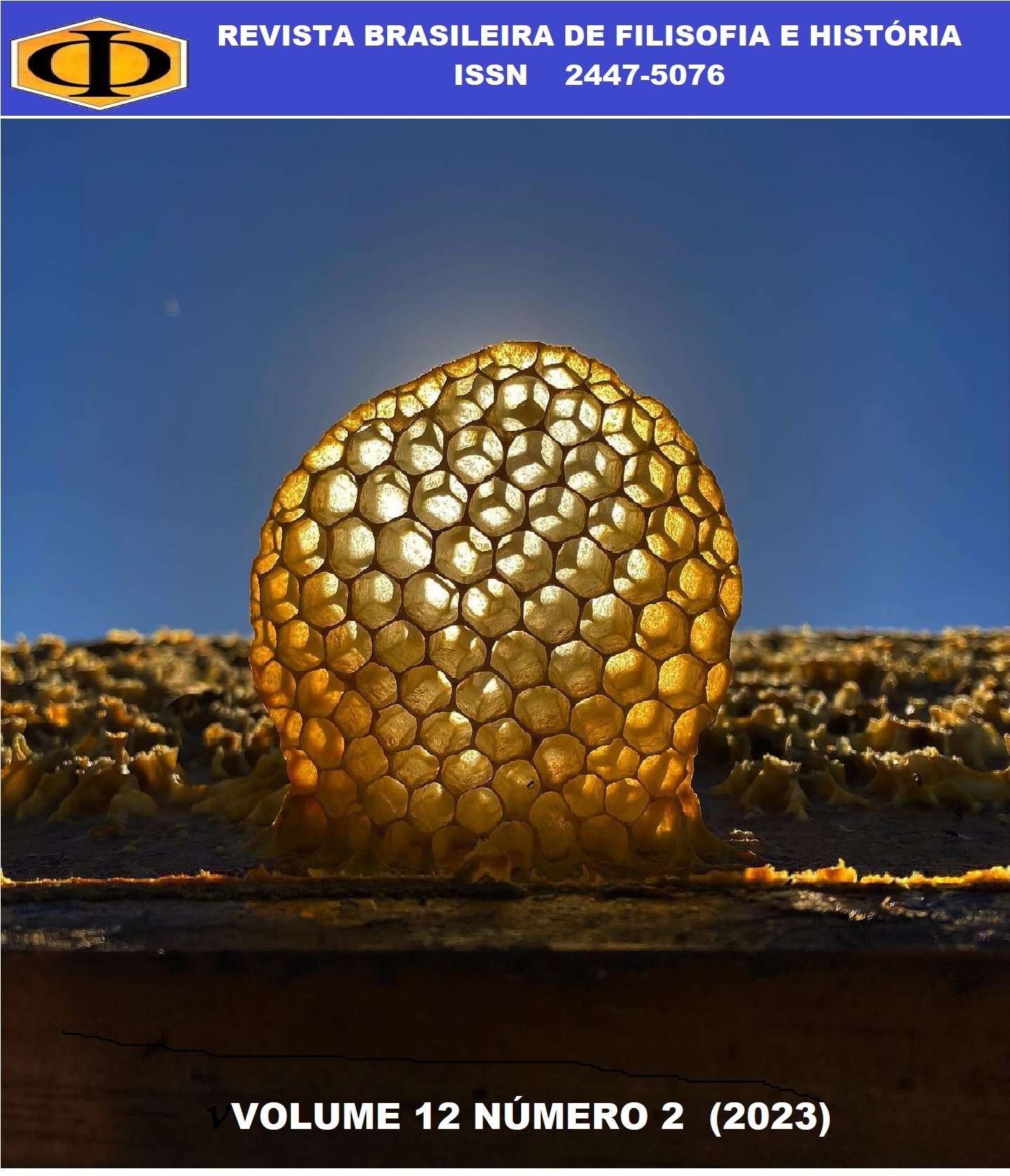The Principle of the Presumption of Innocence: from Theory to Applicability
Abstract
The following study presents analytic views concerning what is the principle of the presumption of innocence or the principle of non-culpability, as it is presented in the 1988’s Brazilian Constitution, in contrast to what is seen in practice, a pulsating principle that must be observed when it goes against the constant but declining use of pretrial detentions. The study strives to, amidst discussions from all fields, promote the debate deriving from the clash between theory and practice. The foundation of this study is cemented on academic discussion with the help of bibliography of various authors, looking to find the point of equilibrium while not forgetting to observe the physical world when it comes to the matter. The focal point is that the principle of presumption of innocence is innavoidable as it shuold be in processual law, even though the use of pretrial detention can be used and sadly abused, actions have been observed to be made towards the utter respect, the goal being the utter erradication of the concept of guilty until proven innocent.
References
AVENA, Norberto. Processo Penal. 12. ed. São Paulo: Método, 2020.
BADARÓ, Gustavo Henrique. Ônus da prova no processo penal. São Paulo: Editora Revista dos Tribunais, 2003. p. 283.
BARROSO, Luís Roberto. Curso de Direito Constitucional Contemporâneo: Os conceitos fundamentais e a construção do novo modelo. 9. ed. São Paulo: Saraiva Educação, 2020.
BECCARIA, Cesare Bonesana, Marchesi de. Dos delitos e das penas. Tradução: Lucia Guidicini, Alessandro Berti Contessa. São Paulo: Martins Fontes, 1997.
BRASIL. Constituição da República Federativa do Brasil. Disponível em:
https://www.planalto.gov.br/ccivil_03/constituicao/constituicao.htm. Acesso em: 11 jun. 2023.
BRASIL. Código de Processo Penal. Disponível em: https://www.planalto.gov.br/ccivil_03/Decreto-Lei/Del3689.htm. Acesso em: 11 jun. 2023.
BRASIL. Lei nº 7.960, de 21 de dezembro de 1989. Dispõe sobre a prisão temporária. Brasília, Presidência da República. [1989]. Disponível em: https://www.planalto.gov.br/ccivil_03/Leis/L7960.htm. Acesso em: 15 jun. 2023.
BRASIL. Lei nº 7.210, de 11 de julho de 1984. Institui a Lei de Execução Penal. Brasília, Presidência da República. [1984]. Disponível em: https://www.planalto.gov.br/ccivil_03/Leis/L7210.htm. Acesso em: 15 jun. 2023.
LIMA, Renato Brasileiro de. Manual de processo penal: volume único. 8ª Ed. Salvador: JusPodivm, 2020.
CAPEZ, Fernando. Curso de Processo Penal. 27. ed. São Paulo: Saraiva Educação, 2020.
CONSELHO NACIONAL DO MINISTÉRIO PÚBLICO. Relatórios Anuais. Disponível em: https://www.cnmp.mp.br/portal/transparencia/estatisticas/relatorios-de-atuacao. Acesso em: 14 jun. 2023.
CONSULTOR JURÍDICO. Em oito anos, audiências de custódia reduziram percentual de prisões provisórias. Disponível em:
https://www.conjur.com.br/2023-fev-26/audiencias-custodia-reduziram-percentual-prisoesprovisorias. Acesso em: 14 jun. 2023.
GRECO, Rogério. Curso de Direito Penal – Parte Geral. 19. ed. Niterói, RJ: Impetus, 2017.
LOPES JUNIOR, Aury. Direito Processual Penal. 17ª Ed. São Paulo: Saraiva, 2020.
MINISTÉRIO PÚBLICO – RIO DE JANEIRO. A Evolução dos Sistemas Processuais Penais e o Exercício Abusivo do Direito de Ação Penal. Disponível em:
https://www.mprj.mp.br/documents/20184/2742148/Alexander_Araujo_de_Souza.pdf. Cesso em: 15 jun. 2023.
MORAES, Maurício Zanoide de. Presunção de Inocência no Processo Penal
Brasileiro: análise de sua estrutura normativa para a elaboração legislativa e para a decisão judicial., 1. ed. Rio de Janeiro: Lumen Juris, 2010.
NUCCI, G. D. S. Curso de Direito Processual Penal. 17. ed. Rio de Janeiro: Forense, 2020.
ROIG, R. D. E. Execução Penal (Teoria Crítica). 5. ed. São Paulo: Saraiva, 2021.
SUPREMO TRIBUNAL FEDERAL. INFORMATIVO STF. Nº 1043/2022. Disponível em:
https://www.stf.jus.br/arquivo/informativo/documento/informativo1043.htm. Acesso em: 14 jun. 2023.
SUPREMO TRIBUNAL FEDERAL. RE 466343. Disponível em: https://portal.stf.jus.br/processos/detalhe.asp?incidente=2343529. Acesso em: 14 jun. 2023.
SUPREMO TRIBUNAL FEDERAL. STF define critérios para decretação da prisão temporária. Disponível em: https://portal.stf.jus.br/noticias/verNoticiaDetalhe.asp? idConteudo=481715&ori=1. Acesso em: 14 jun. 2023.
VEGAS TORRES, Jaime. Presunción de Inocencia y Prueba en el Proceso Penal. 1. ed. Madrid: La Ley, 1993.
Downloads
Published
How to Cite
Issue
Section
License
Esta é uma revista de acesso livre, onde, utiliza o termo de cessão seguindo a lei nº 9.610/1998, que altera, atualiza e consolida a legislação sobre direitos autorais no Brasil.
Autores que publicam na Revista Brasileira de Filosofia e História (RBFH) concordam com os seguintes termos:
O(s) autor(es) doravante designado(s) CEDENTE, por meio desta, cede e transfere, de forma gratuita, a propriedade dos direitos autorais relativos à OBRA à Revista Brasileira de Filosofia e História (RBFH), representada pelo Grupo Verde de Agroecologia e Abelhas (GVAA), estabelecida na Rua João Pereira de Mendonça , 90 Bairro Petropolis em Pombal - PB doravante designada CESSIONÁRIA, nas condições descritas a seguir: 1. O CEDENTE declara que é (são) autor(es) e titular(es) da propriedade dos direitos autorais da OBRA submetida. 2. O CEDENTE declara que a OBRA não infringe direitos autorais e/ou outros direitos de propriedade de terceiros, que a divulgação de imagens (caso as mesmas existam) foi autorizada e que assume integral responsabilidade moral e/ou patrimonial, pelo seu conteúdo, perante terceiros. O CEDENTE cede e transfere todos os direitos autorais relativos à OBRA à CESSIONÁRIA, especialmente os direitos de edição, de publicação, de tradução para outro idioma e de reprodução por qualquer processo ou técnica através da assinatura deste termo impresso que deverá ser submetido via correios ao endereço informado no início deste documento. A CESSIONÁRIA passa a ser proprietária exclusiva dos direitos referentes à OBRA, sendo vedada qualquer reprodução, total ou parcial, em qualquer outro meio de divulgação, impresso ou eletrônico, sem que haja prévia autorização escrita por parte da CESSIONÁRIA.













